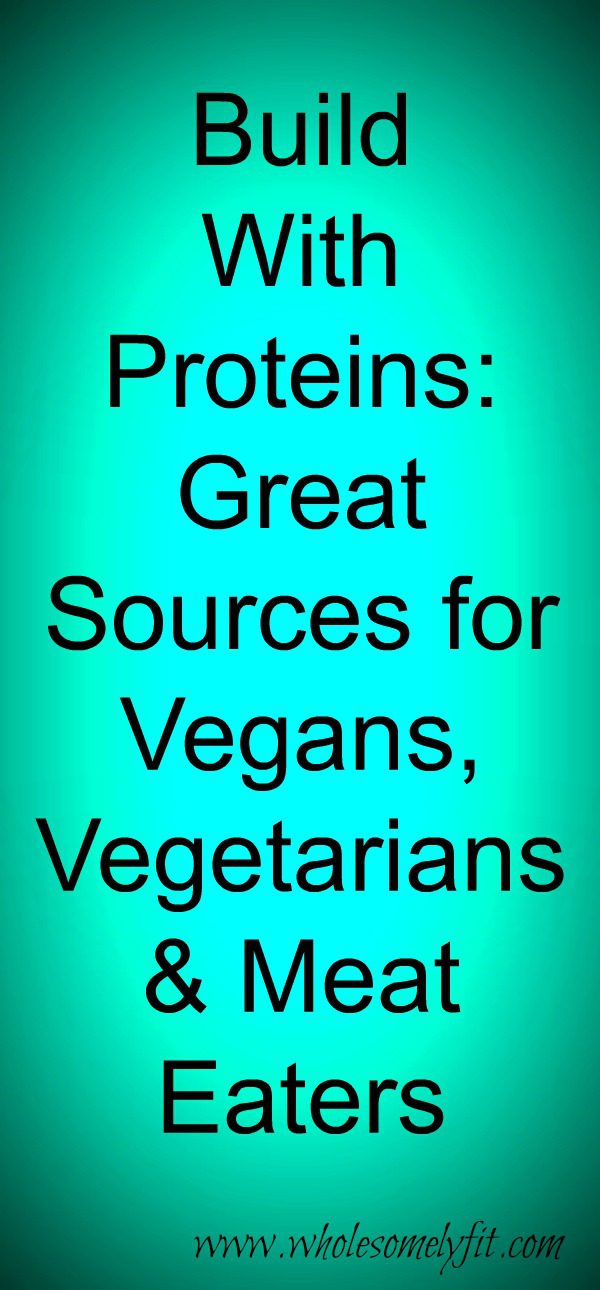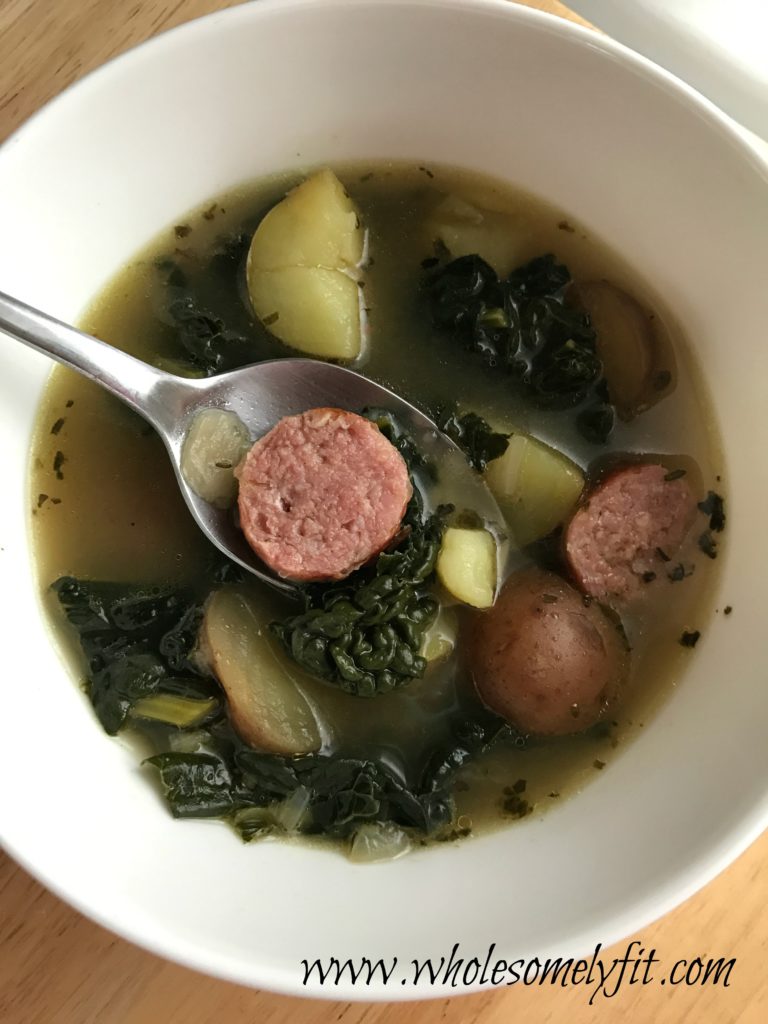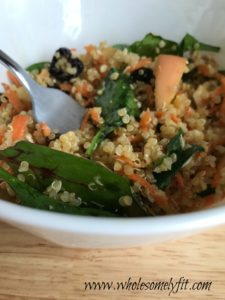We are closing in on the end of the mini series on macro-nutrients. I have enjoyed sharing this series and I am excited for the last few posts of the series next week.
Here’s a recap of the past posts if you missed them:
- The Good & Bad on Carbohydrates: Which carbs you should be consuming, and those you should avoid or limit
- Why High Carbohydrate Diets aren’t Necessary for Endurance Events: The theory that carbo-loading is a must if doing endurance events, is now replaced with new research on the benefits of high fat diets.
- The Skinny on Fats: Good Fats vs. Bad Fats: An outline of the different types of fats, and why they are unhealthy or healthy.
- The Skinny on Fats: 7 Best Fat Sources & Why Fats Help with Weight Loss: My favorite & best food sources high in EFA’s and healthy fat that can help with weight loss or maintaining weight.
Today we’ll take a closer look at protein. If I am to be honest, protein is the one macro-nutrient I probably do the worst in consuming. I love my carbohydrates and my fats, but protein is thrown to the side. As an endurance athlete, I have made intentional changes to my diet to help incorporate more protein.
If you are a vegetarian or vegan, protein is still easy to consume, especially in today’s culture. There’s more options now for vegetarians and vegan, and meat is not the only complete protein, even though it’s thought to be. I don’t call myself a vegetarian or vegan. I will eat meat on occasion, but only from my father’s ranch. We might have meat once or twice a month, otherwise I stick to plant-based proteins for most of our diet.
If you aren’t vegetarian or vegan, don’t go just yet, in today’s post I am explaining why protein is important and what it does in our bodies, as well as some healthy protein sources, both for meat lovers and vegetarian/vegan friendly.
Proteins are made of amino acids. These amino acids form the structural components of collagen, skin, hair, and muscles; they maintain homeostasis in the body; synthesize hormones; work in the immune system as anti-bodies, and create enzymes. Protein is also needed to form hemoglobin, which carries oxygen in the blood.
There’s really no bad dietary proteins (to some extent); however, there is a problem with consuming too much or too little protein. In America, we have more of a problem with protein excess, which can lead to various conditions (a topic to be addressed later). It’s suggested to consume 46 grams of protein for women and 56 grams of protein for men per day. This is the recommendation, but others may consume more protein or a little less based on their genetic profile or needs. In America, the average person consumes over 100 grams of protein per day,far too much.
Extra protein isn’t stored as protein, rather converted to glucose or stored as fat. There are complete proteins, which contain 9 essential amino acids and incomplete proteins which only contain some of the essential amino acids. Many meat sources are complete proteins; however, most plant based proteins are not, thus combining protein sources is necessary.
For example, rice with beans creates a complete protein, nuts and seeds mixed with grains, etc. These don’t have to be combined at the same meal. Also, it’s important to combine protein with carbohydrates after working out to help replenish glycogen stores and to rebuild the muscles.
Essential amino acids are not formed by your body and have to be consumed through the diet, while non-essential amino acids can be made by the body. I also must add, that some protein sources will be healthier than others in terms of the type of fats they contain. Now, a hamburger from McDonalds is not going to be a healthy protein option, compared to a hamburger made from grass fed beef, without hormones.
The Best Protein Sources for Meat Lovers:
- White Poultry – White meat from chicken or turkey is better than dark meat (less fatty).
- Lean Beef – Grass fed beef is the best, because corn fed beef is high in fats and has a unhealthy ratio or omega 6’s to omega 3’s, which can led to heart disease. Lean beef is also less fatty. Personally, grass fed beef just tastes better; to be completely honest, beef straight from the ranch just tastes better. Look for organic as well, less risk of hormones and synthetic feed.
- Fish – Salmon, tuna, halibut, etc are all great sources of protein as well as healthy EFA’s (Essential Fatty Acids). Don’t buy fish raised in farms, and limit your intake to 2 servings a week due to mercury levels in fresh caught fish.
- Eggs – Choose cage free, organic eggs.
- Greek Yogurt – 20+ grams in 1/2 cup. Stick with plain and read ingredient labels to make sure the sugar content is low (I shoot for less than 7 grams per 1 cup / serving of sugar). Yogurt also has healthy probiotics and healthy fats.
- Cottage Cheese – Cottage cheese contains casein protein, which is a slow digesting protein that supplies your muscles with a steady supply of amino acids. 14 g in a 1/2 cup.
- Mixed Nuts – Unsalted is the best choice because of sodium. Nice source of healthy fats as well.
- Peanut Butter – Never by reduced fat, because they replace fat with sugar, and stay away from hydrogenated oils. Stick to organic or peanut butter with no added sugars and hydrogenated oils. Fattier than almond butter, but higher in protein.
The Best Protein Sources for Vegetarians/Vegans:
- Beans – One of the simplest ways for vegetarians /vegans to add protein to their diets. There’s a variety of different types of beans too, and they contain a healthy dose of fiber as well. Add to salads, use in place of meat for tacos, enchiladas or make a great dip / hummus, even brownies.
- Tofu – Made from soybeans and great in stir fries, or used to make dressings and sauces, even in sandwiches. It’s important to look for non-GMO, since soybeans are among the top genetically modified food crops.
- Eggs – I go for cage free, organic eggs. Eggs also contain healthy fats too.
- Yogurt – Greek is my favorite. Look for organic or yogurt from cows not treated with rBST, and full fat (remember it’s the healthy fat). Also, check for live cultures, the healthy bacteria / probiotics. Then you are triple dipping, getting protein, healthy fats & feeding your gut.
- Lentils – They have a healthy dose of fiber and vital minerals as well, and are cheap. Great in soups and salads.
- Mixed Nuts – Choose unsalted. You’ll also get a healthy dose of healthy fats too.
- Peanut Butter – *See above – Add into smoothies, make protein bites with, top oatmeal or sweet potatoes. Possibilities are endless.
- Quinoa – A complete protein. Great to top salads, or mixed with beans, stuffed in tacos or quesadilla. Delicious for breakfast as well.
- Plant Based Protein Powders – My favorite is Orgain or Vega-One. These brands use a variety of plant based proteins, from hemp seeds to pea protein, making sure all 9 essential amino acids are available.
- Hemp Seeds – A complete protein and contains 30% protein. Use in salads, smoothies, oatmeal or protein bites.
- Chia Seeds – Also a complete protein rich in fiber & EFA’s, also a good source of calcium. Make chia seed pudding or overnight oats with chia seeds. Use in baking, smoothies & oatmeal.
Until Next Time Be Whole and Be Fit
Questions?


